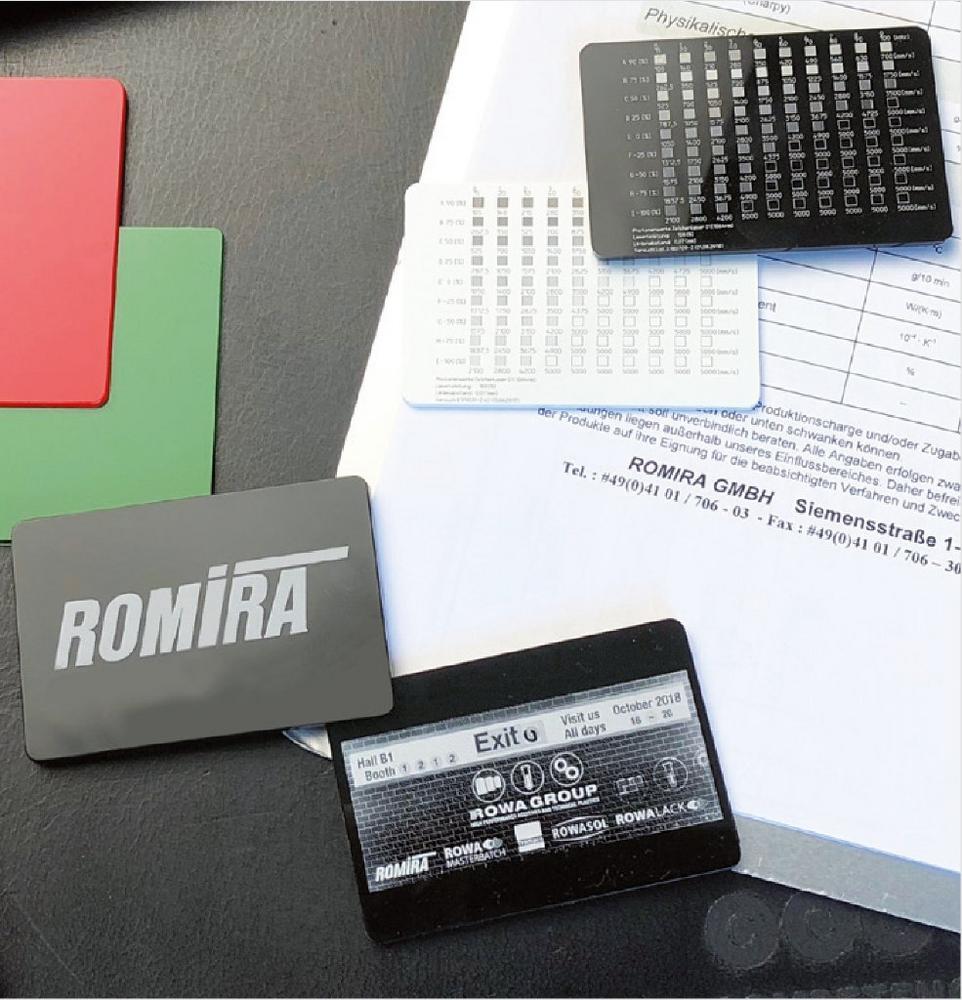The advantages of laser technology, compared to pad printing, for example: the laser operates quickly, contact-free and efficiently. As there is no need for retooling in case of design changes, both the production time and reject rate can be reduced.
The laser marking process is used for product labeling – for example to inscribe serial numbers and to alter the surface design in terms of coloring and structure. Apart from the preset laser parameters, the laser additive used as well as the material itself are crucial for the quality of the labeling.
With polycarbonate (PC) and styrenic copolymers (PS, ABS, ASA, AES, SAN) a dark marking is achieved by partial carbonization, i.e. charring. With polyacetals (POM) and polyacrylates (PMMA) a light marking can be produced by foaming.
Polycarbonate is easy to mark even without laser additive, but the quality of the marking – contour definition and contrast – can be greatly improved by the use of the right laser additive. When marking styrenic copolymers, on the other hand, a laser additive is essential because the marking is poor quality without special additives. Polyacetals and polyacrylates foam, as a result of the interaction with the laser and produce very contrasting, light markings in dark colors with the corresponding additives.
Glass fibers and glass beads normally have no effect on the marking contrast. Mineral fillers such as talcum, however, may have a slightly negative effect. What’s more, the flame retardants used in certain fire-resistant products can hamper laser marking because they prevent the combustion process.
In a general comparison, labeling of plastic parts by means of laser marking has proven to be an effective method with great benefits. Thanks to its many years of experience and ROWA GROUP-wide expertise ROMIRA is the perfect partner on your side and always open to new projects.
The ROMIRA GmbH was founded in 1990 and is an affiliated partner within the ROWA GROUP. As part of this strong combine, ROMIRA sets standards for technical plastics with its profound competence and synergetic know-how.
ROWA GROUP Holding GmbH
Siemensstraße 1-9
25421 Pinneberg
Telefon: +49 (4101) 70606
Telefax: +49 (4101) 706203
http://www.rowa-group.com
ROMIRA GmbH
Telefon: +49 (4101) 706328
E-Mail: a.exner@romira.de
